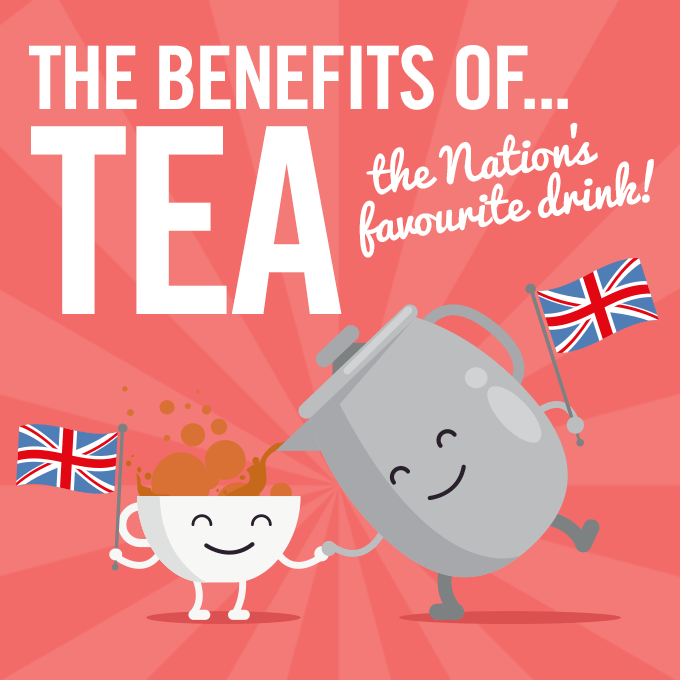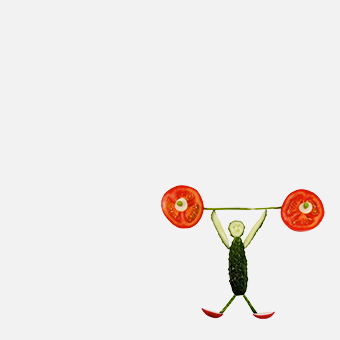Britain is a nation of tea lovers! Despite the multitude of soft drinks available and the growth of coffee products, tea is still the drink of choice for millions of us. The average Brit drinks 876 cups of tea a year – enough to fill two baths! The over-55s drink the most tea, averaging 21 cups a week, compared to 18 – 24-year-olds who drink just eight. No matter what the season, tea can be a tasty beverage since it can be served iced or hot. It is the most consumed beverage in the world after water.
You are currently recommended not to have more than five cups of caffeinated teas per day. However, choosing decaffeinated or caffeine-free teas, such as herbal teas, is a safe way of drinking six to eight cups of tea per day.
Different types of tea
Most tea comes from the Camellia Sinensis plant. It is grown all around the world in tropical and subtropical areas. The different flavours of tea reflect the variety of plant, the processing, growing conditions and weather. There are various categories of tea:
Black tea
The picked leaves wither before oxidation, during which water evaporates out of the leaf and the leaf absorbs oxygen from the air. Black teas usually undergo full oxidation, which results in the characteristic dark brown and black leaf that we are familiar with. These teas often have strong flavours and higher caffeine content compared to other teas.
White tea
The leaves are hand-processed using the youngest shoots, with no oxidation. When gently brewed white teas produce low amounts of caffeine. They are the most delicate of all teas and are appreciated for their subtlety, complexity and natural sweetness.
Green tea
The leaves are only allowed to wither slightly after picking. The oxidation process is stopped very quickly by heating the leaves. This means that green teas tend to have less caffeine and more subtle flavours.
Oolong tea
The leaves are partially oxidised and have a caffeine content between that of green teas and black teas. The flavour is not as robust as black tea or as subtle as green, but has its own fragrant tone, sometimes fruity.
Herbal tea
These teas are not made from the Camellia Sinensis plant, but instead the flavour comes from a variety of herbs or flowers. They are naturally caffeine-free, so you can safely drink 6 to 8 cups a day without having to worry about potential caffeine side effects.
Is green tea really good for you?
Green tea contains less caffeine than black tea, so if you’re looking to reduce your caffeine intake green tea is a good choice, or look for caffeine-free varieties.
Green tea has a high concentration of polyphenols, a natural antioxidant that protects your body’s cells from damage from free radicals and environmental toxins. Studies show that drinking 2 or 3 cups of green tea a day will help you get the full benefits from the antioxidants. Green tea may also help treat high cholesterol and help to prevent blocked arteries. It has also traditionally been used to improve digestion and keep blood sugar levels in check.
Why should I drink herbal tea?
If you’re trying to avoid caffeine, particularly in the evenings, herbal teas can be a popular choice. There’s a wide variety of flavours, and the scent makes it an attractive drink.
Depending on what they are made of they have additional benefits. Chamomile tea is made from the flower blossoms and is one of the most commonly used herbs. It can be used to relieve anxiety, encourage sleep and relieve stomach trouble. Peppermint teas are made from the leaves and are known for their calming influence. Ginger tea can be used to help relieve cold and flu symptoms, as well as nausea and headaches.
Is it all in the mind?
There is plenty of research showing that drinking tea can improve your health. At the very least, it’s a pleasant way of getting enough fluid into your body each day. On top of that, studies have shown teas can help protect your heart, as well as helping to stave off cancer.
Studies show nearly 20% reduction in the risk of heart attack and a 35% reduced risk of stroke among those who drank one to three cups of green tea a day. Tea also changes the pH in your mouth when you drink it, which helps prevent tooth decay – definitely a better option than many soft drinks.
As well as the science, there is no doubt that for many of us there is a ritual and habit around making tea. Making a cup of tea is comforting and signals to your body that it is time to relax. It has been found that putting the kettle on can reduce your stress levels by up to a quarter!
Tea breaks are a tradition which started more than 200 years ago. Regular tea breaks can play a vital part in the day to help maintain a positive attitude towards work and fluid intake. So feel free to pop on the kettle and reach for the teabags – and relax and enjoy!


















